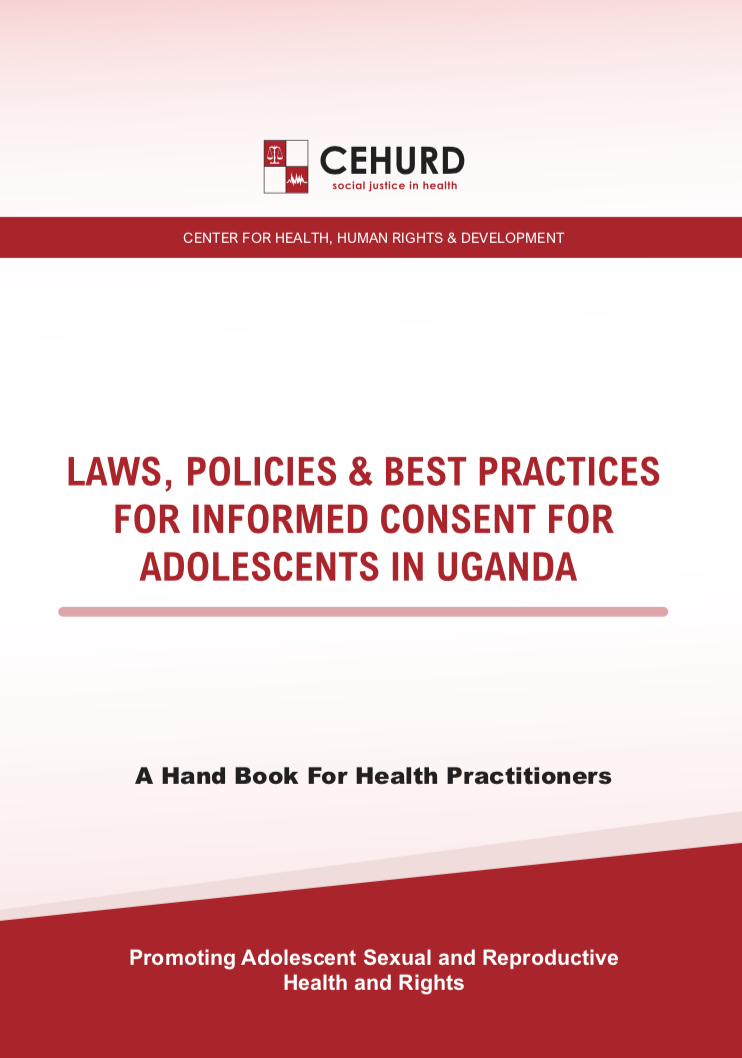- Version
- Download 21556
- File Size 2.66 MB
- File Count 1
- Create Date September 18, 2019
- Last Updated May 19, 2025
Laws, policies and best practices for informed consent for adolescents in Uganda
Adolescence is characterized by dramatic physical, psychological and social changes that adolescents lack skills to cope with. While adolescents feel capable of performing almost anything independently, they are prone to peer influence, experimentation and risk-taking, all of which are normal and part of the process of developing decision-making skills. They may begin to experiment with sex, alcohol, tobacco or drugs. What makes adolescents particularly vulnerable is their dependency, inexperience and lack of positive guidance.
On the other hand, adults (including health providers) rarely understand or appreciate the situation and challenges of adolescents. Many still look at them children who are incapable of handling any major responsibilities or making sensible decisions. They assume adolescents enjoy robust health, having outgrown childhood diseases and are not yet susceptible to the ailments of old age.
Although the overall burden of disease may be lower in adolescents, they are vulnerable to sexual and reproductive health (SRH) challenges, such as early/unwanted pregnancy, unsafe abortion, sexually transmitted infections (including HIV), substance abuse, sexual violence, delivery complications.
Attached Files
| File | Action |
|---|---|
| SRHR-Consent-Handbook.pdf | Download |

